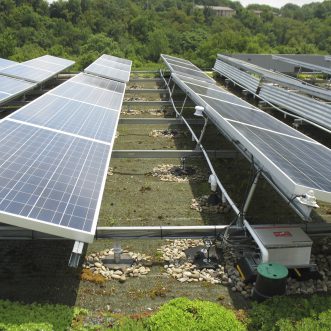November 16, 2021
On October 18, 2021, the United States Environmental Protection Agency (U.S. EPA) announced the agency’s PFAS Strategic Roadmap: EPA’s Commitments to Action 2021—2024, which lays out a whole-of-agency approach to addressing PFAS for 2021 through 2024.
The U.S. EPA’s approach to PFAS is focused on three central goals and objectives:
- Invest in research, development, and innovation to increase understanding of PFAS exposures and toxicities, human health and ecological effects, and effective interventions incorporating the best available science.
- Proactively prevent PFAS discharges at levels that can adversely impact human health and the environment.
- Broaden and accelerate the cleanup of PFAS contamination to protect human health and ecological systems.
The following is a list of significant actions and expected dates proposed. These policies will affect manufacturers, wastewater treatment facilities, landfills and end users of PFAS.
| Actions | Proposed Date |
|---|---|
| Address the data gap of potential human health and ecological effects for PFAS by publishing a national PFAS testing strategy | Fall 2021 |
| Ensure a robust review process for new PFAS using the Toxic Substance Control Act (TSCA) New Chemicals Program | Ongoing |
| Review previously approved PFAS under the New Chemicals Program of TSCA | Ongoing |
| Reclassify PFAS previously approved but not currently used as “significant new uses,” requiring new approval before the PFAS can enter commerce | Summer 2022 |
| Propose a rulemaking to categorize the PFAS on the TRI list as Chemicals of Special Concern and to remove the de minimis eligibility from supplier notification requirements | Spring 2022 |
| Finalize new PFAS reporting under TSCA Section 8 | Winter 2022 |
| Expand the Unregulated Contaminant Monitoring Rule (UCMR)-5 sampling to all public water systems serving 3,300 or more people and 800 representative public water systems serving fewer than 3,300 | Fall 2021 |
| Establish a national primary drinking water regulation for PFOA and PFOS | Proposed Rule Expected Fall 2022, Final Rule Expected Fall 2023 |
| Publish the final toxicity assessment for GenX, PFBA, PFHxA, PFHxS, PFNA, and PFDA | Ongoing |
| Publish drinking water health advisories for GenX and PFBS | Spring 2022 |
| Restrict PFAS discharges from industrial sources using Effluent Limitations Guidelines (ELGs) | Expected 2022 |
| Use existing National Pollutant Discharge Elimination System (NPDES) authority to reduce discharges of PFAS at the source and obtain more comprehensive information through monitoring on the sources of PFAS | Winter 2022 |
| Publish multi-laboratory validated analytical method for 40 PFAS | Fall 2022 |
| Publish updates to PFAS analytical methods to monitor drinking water | Fall 2024 |
| Develop national recommended ambient water quality criteria for PFAS | Starting winter 2022 |
| Monitor fish tissue for PFAS in the National Lakes Assessment | Summer 2022 |
| Finalize list of PFAS for use in fish advisory programs | Expected spring 2023 |
| Finalize risk assessment for PFOA and PFOS in biosolids | Winter 2024 |
| Develop a Notice of Proposed Rulemaking to designate PFOA and PFOS as Comprehensive Environmental Response, Compensation, and Liability Act (CERCLA) hazardous substances | Spring 2022 |
| Develop an Advance Notice of Proposed Rulemaking to seek public input on whether to designate other PFAS as CERCLA hazardous substances | Spring 2022 |
| Issue updated guidance on destroying and disposing of certain PFAS and PFAS-containing materials | Fall 2023 |
| Build the technical foundation to address PFAS air emissions | Fall 2022 and ongoing |
| Use enforcement tools to better identify and address PFAS releases at facilities | Ongoing actions |
| Break the large, diverse class of PFAS into smaller categories based on similarities across defined PFAS by parameters (such as chemical structure, physical and chemical properties, and toxicological properties) | Winter 2021 |
CEC is closely monitoring developments regarding PFAS. If you have other questions related to PFAS regulations throughout the U.S., please contact Steve Maxwell at smaxwell@cecinc.com or at 888.267.7891.



Post a Comment